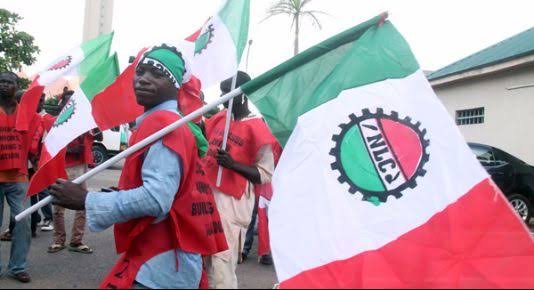Labour Strike: NLC/TUC suspends nationwide action after government offers higher minimum wage but fails to address electricity tariff hike and band classification. Threats of legal action loom. Stay tuned for updates.
In the tumultuous landscape of Nigerian labor relations, the recent developments surrounding the nationwide strike initiated by the Nigeria Labour Congress (NLC) and the Trade Union Congress (TUC) on June 3, 2024, have captured national attention. The heart of the matter lies in the Federal Government’s offer to increase the national minimum wage, an offer that, while higher than the current N400, has been viewed by many as insufficient.
In a joint National Executive Council (NEC) meeting held on June 4, 2024, the leaders of NLC and TUC deliberated on the government’s proposal and other critical issues, such as the reversal of the electricity tariff hike and the cessation of the discriminatory classification of electricity consumers into bands.
Key Issues at Stake
National Minimum Wage:
The NEC acknowledged the personal offer by President Bola Ahmed Tinubu to commit to a higher national minimum wage above the N60,000 initially proposed. While this was seen as a step in the right direction, many within the NEC believed it still fell short of addressing the financial realities faced by Nigerian workers.
Electricity Tariff Hike and Classification:
The government’s silence on reversing the electricity tariff hike and abolishing the discriminatory band classification was met with disappointment. The NEC emphasized that these issues are critical to alleviating the financial burden on Nigerian workers and the general populace.
Withdrawal from Wage Negotiations:
The refusal of the Federal Government to go beyond the N60,000 offer during the national minimum wage negotiations led to the withdrawal of labor unions from the Tripartite Committee. The NEC’s frustration was palpable, underscoring the perceived inadequacy of the government’s commitment to workers’ welfare.
The Government’s Stance
Attorney General of the Federation and Minister of Justice, Lateef Fagbemi, warned that workers planning to continue the indefinite strike risked a six-month jail term under the Trade Disputes Act. This legal threat, alongside the interim injunctive order granted by the National Industrial Court, added a layer of tension to the ongoing negotiations.
Resolutions and Reactions
In a bid to create a conducive atmosphere for continued negotiations, the NEC resolved to relax the nationwide strike for one week, urging the Federal Government to commit to a concrete and acceptable national minimum wage and address the electricity tariff issues. The leaders of NLC and TUC were mandated to maintain open communication channels with the government to secure favorable outcomes for Nigerian workers.
Conclusion
As the strike suspension takes effect, the Nigerian public watches with bated breath, hoping for a resolution that truly reflects the needs and aspirations of the working class. The NLC and TUC remain steadfast in their commitment to protect the rights and welfare of Nigerian workers, a sentiment echoed by the leaders and rank-and-file alike.
As BlaccTheddi Post continues to report on these critical issues, we remain committed to delivering news that is authentic, progressive, and geared towards the pursuit of change. Stay tuned as we follow the developments and bring you the stories that matter.

Leave a Reply
You must be logged in to post a comment.